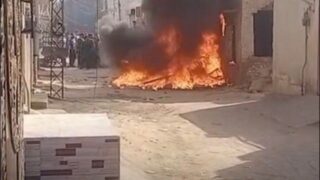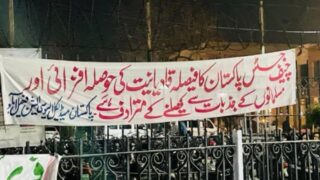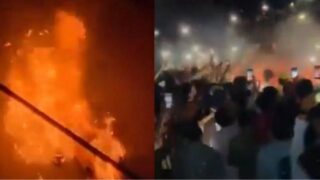The designation of the deputy chief of Lashkar-e-Taiba as a global terrorist has been blocked by China at the United Nations.
by Massimo Introvigne


Last week, China made a strange but not unprecedented move at the United Nations. It blocked for “technical reasons” the designation of Abdul Rehman Makki as a global terrorist at the UN Security Council’s Al Qaeda (Dae’sh) and ISIL Sanctions Committee, also known as the UNSC 1267 Committee.
From 2009 to 2019, China systematically vetoed the designation as global terrorist of Mohammad Masood Azhar Alvi, the leader of the Deobandi ultra-fundamentalist Islamic Pakistani organization Jaish-e-Mohammed, responsible for a series of bloody terrorist attacks. Only after ten years of vetoes, China finally took international criticism into account and pulled its opposition, which resulted in Azhar been designated on May 1, 2019 as a global terrorist.
Makki is the deputy commander of Lashkar-e-Taiba, a group that is banned in Pakistan and is designated as a terrorist organization by the United Nations 1267 Committee. The UN Committee has also declared Jama’at-ud-Da’wah, the political branch of Lashkar-e-Taiba, a terrorist front group. The leader of Lashkar-e-Taiba and Jama’at-ud-Da’wah, Hafiz Saeed, who is Makki’s cousin and brother-in-law, was sentenced on April 8 this year by a special anti-terrorism court in Lahore, Pakistan, to a jail term of 33 years for “financing terrorism.”


On the other hand, many experts believe that Lashkar-e-Taiba and Jama’at-ud-Da’wah could not operate in Pakistan as they do without the protection and cooperation of the local intelligence services. In protecting Makki at the United Nations as a member of the Security Council with veto power, China in this sense acted as a proxy for Pakistan.
At the same time, the veto sends a signal that within the framework of the current international situation anti-Western (and anti-Indian) feelings so much color Beijing’s moves to the point that China is prepared to contradict its rhetoric of fighting international terrorism and may in fact protect it.









